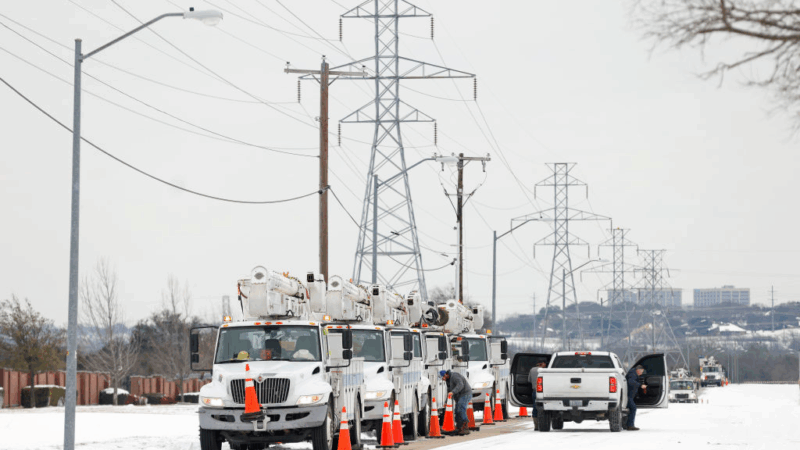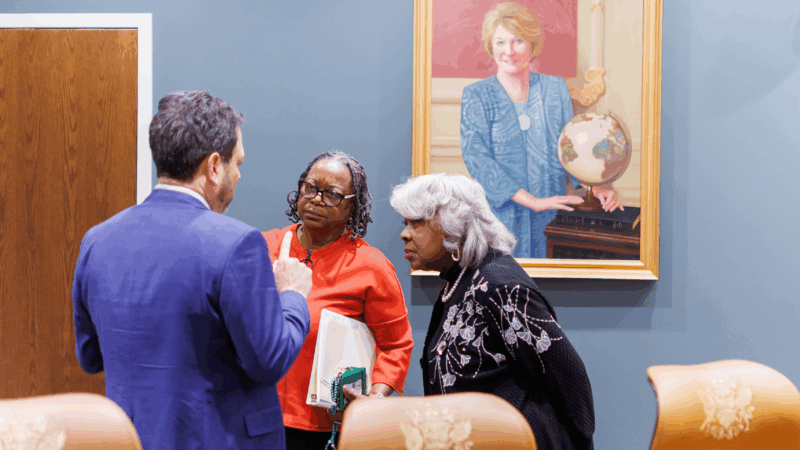Advocates Searching for Ways State can Improve Child Wellbeing
A children’s advocacy group is looking at ways Alabama can improve its national ranking for overall child wellbeing.
Officials from VOICES for Alabama’s Children in Montgomery responded to the national 2016 Kids Count Data Book put out by the Annie E. Casey Foundation last month. The data book measures children’s overall well being over four areas: economic wellbeing, health, education and family and community.
According to the report, Alabama ranks 46th in the country for overall child wellbeing, an area the state continues to fall in year over year. The state ranked in the bottom ten states in every category and VOICES analyzed what it would take to improve these numbers.
“Programs that take a two-generational approach can help raise the educational attainment of the parent or head of household and can have direct impact on the educational achievement of their children,” says Rhonda Mann, VOICES research and policy director. She says education – for both adults and children – is one of the first steps to improving the lives of children in the state.
VOICES outlined several policy initiatives aimed at improving the lives of Alabama’s children, Mann says. One plan is increasing access to First Class Pre-K, a proposal also made by Governor Robert Bentley earlier this year. In May, Bentley announced a $16 million increase to the Education Trust Fund to provide access to voluntary pre-kindergarten to nearly 3,000 additional Alabama children.
Alabama did improve under four health indicators, Mann says, but cuts to the state’s Medicaid program could mean trouble for uninsured children.
“Increasing the number of children with insurance by about 20,000 would move us from 4 percent to the number one rate of 2 percent. That’s all the more reason we need to encourage our lawmakers to fill the $85 million dollar gap in Medicaid funding,” says Mann.
The majority of people in Alabama that receive Medicaid are children, pregnant women and the elderly. Medicaid Commissioner Stephanie Azar announced last week the first cuts to the state’s Medicaid program following an $85 million budget shortfall. Officials cut the “primary care bump” given to some primary care providers in an effort to encourage those providers to accept Medicaid patients.
Ilia Malinin, figure skater favored for gold, finishes 8th
Malinin, undefeated since 2023, stumbled and fell multiple times, landing far off the podium. Mikhail Shaidorov of Kazakhstan won gold in an upset that shocked even himself.
DHS says immigration agents appear to have lied about shooting in Minnesota
Julio Cesar Sosa-Celis was shot in the leg during the incident. Another Venezuelan man was also accused of attacking an immigration officer.
Venezuela debates sweeping amnesty for political prisoners
After the fall of Nicolás Maduro, the Venezuelan regime promise amnesty and reconciliation — but for hundreds still jailed and thousands facing charges, justice remains uncertain.
It’s been five years since catastrophic Texas blackouts. How much has changed?
Power companies say they're better prepared for extreme weather, but challenges remain to electricity production as the state's demand grows
FBI releases description of suspect, increases reward in Nancy Guthrie case
The FBI describes the armed man caught on Nancy Guthrie's camera as 5-foot-9-inches to 5-foot-10 and of average build. The 84-year-old mother of Savannah Guthrie has been missing since Feb. 1.
Virginia court allows Democrats’ redistricting vote in their plan to counter to Trump
The ruling allows an April election where voters can let the legislature draw a new congressional map. It could help Democrats win more House seats. Republicans might still fight it in court.







